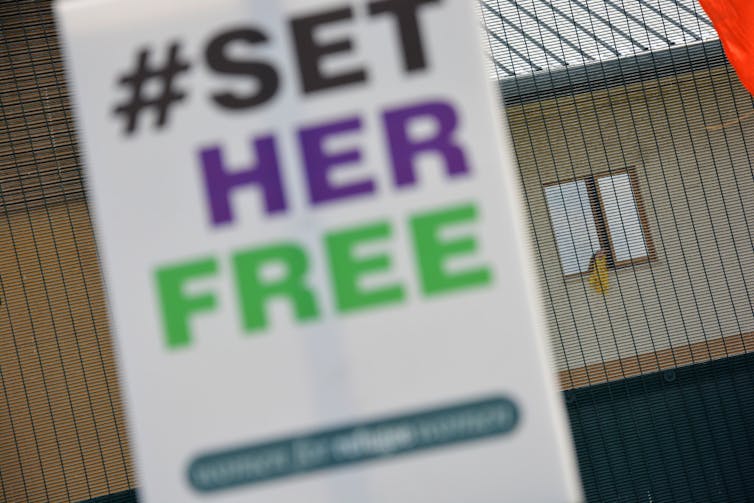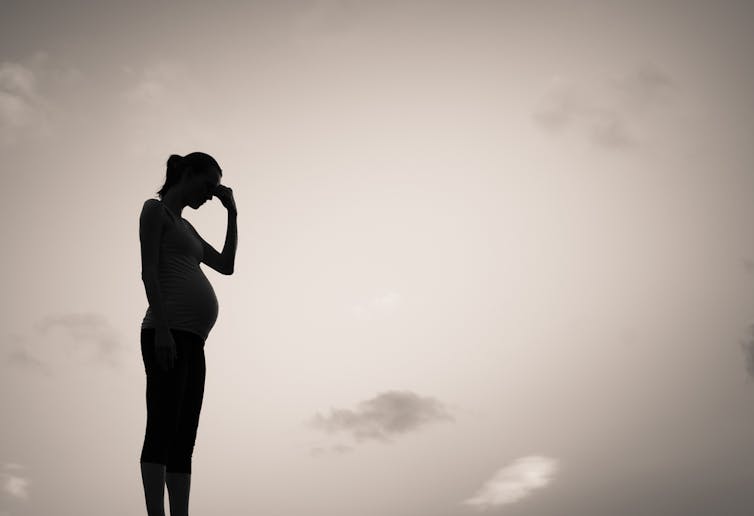Three days is still too long to hold pregnant women in immigration detention

It’s been two years since a coalition of lobbying groups in the UK successfully challenged Home Office policy on the immigration detention of pregnant women. Under the new policy, enforced in mid-July 2016, pregnant women can now only be detained for a maximum of 72 hours (three days), or up to one week with the agreement of a minister.
Yet around 50 pregnant women are still detained annually for administrative immigration purposes, not on criminal grounds. They are rarely removed from the UK, but the experience of immigration detention puts them under avoidable maternal health risk.
A new progress report, commissioned by the Home Office from Stephen Shaw, a former prisons and probation ombudsman, has provided an update on the welfare of vulnerable people in immigration detention.
Between the point when the time limit was first enforced in July 2016 until November 2017, 73 pregnant women were detained, of which only 15 were removed. This demonstrates that detention is not being mainly used for imminent removal from the UK, as it was first intended when the government expanded its detention estate in the early 2000s. Nor is it being used “as a last resort”, as recommended by the UN High Commission for Refugees.
Shaw reiterated his previous recommendation for an “absolute exclusion” of pregnant women in detention originally made in the first version of his report in January 2016. Despite a House of Lords vote in favour of this recommendation, Theresa May, home secretary at the time, overruled it and instead introduced the 72-hour limit in the Immigration Act 2016.
Considering that the UK is the only country in Europe with no statutory time limit on immigration detention, a limit of three days for pregnant women could be considered significant progress. Still, from a human rights perspective, detaining a pregnant woman for even one hour is “unnecessary and cruel”, according to Stephanie Harrison QC from Garden Court Chambers. Likewise, the Royal College of Midwives states that detention: “Increases the stress placed on a pregnant woman at a time when she is increasingly vulnerable; maternal stress can lead to poor neonatal outcomes.”
Deprived of their liberty and dignity, many pregnant women may have other children and family already in the UK from whom they’re separated while living in immigration limbo. There are also questions about whether antenatal health needs – which are time sensitive and deeply personal – will be met.
Pregnant women at unnecessary risk
My research focuses on the voluntary work of volunteer visitors who offer emotional and practical support to people held in immigration detention in the UK. A volunteer I interviewed shared her shocking experiences befriending a couple who were seeking asylum and expecting their first child before the new time limit was enforced.
The volunteer described the extreme distress endured by the woman upon separation from her husband who was first held in a different detention centre and later transferred to the centre where she was being held. She spent three months of her pregnancy detained, traumatised by enforced removal charter flights which were cancelled twice by their lawyers, before she and her husband were released on bail. They were placed in a temporary hostel in a small single room, shared with another pregnant woman and her husband, before being moved to more appropriate government-contracted accommodation in the north of England. Four years later, and now with two children, they are still awaiting a decision on their asylum case.
A medical charity’s 2013 research revealed the deterioration of asylum-seeking women’s mental and physical health and some pregnancy complications inside immigration detention centres, on top of the traumatic issues of those who were victims of rape, torture and trafficking. Other testimonies from previously detained pregnant women have described harrowing journeys as they were transferred to Yarl’s Wood Immigration Removal Centre, the main centre in the UK for detaining female foreign nationals.

In March 2015, an investigation of Yarl’s Wood by Channel 4 News, included a pregnant woman collapsing in the dining room, bleeding and eventually being taken to the hospital only to learn she had miscarried and would return to the detention centre. Serco, the company contracted by the government to run Yarl’s Wood, commissioned an independent investigation on the incidents highlighted by the Channel 4 exposé, and agreed to make a series of changes as a result of the investigation’s recommendations.
Other cases have been settled in court, contributing to the £21.2m spent by the Home Office on compensation payments for unlawful detention between 2012 and 2017.
Safeguarding hidden vulnerable women
Although fewer pregnant women are being detained at Yarl’s Wood, it’s possible they are being held in temporary holding facilities in ports and police stations where antenatal care is limited. The data on pregnant women in detention included in Shaw’s recent report did not include women held at ports. More generally, Shaw said he was: “Concerned about the possibility that holding rooms could be used for detention for more than one night, albeit rarely.”
Accurate medical information about how many pregnant women are actually detained and where can be difficult to obtain. The help of voluntary sector and legal and health workers is necessary to ensure pregnant women (and other particularly vulnerable people) do not remain hidden in holding facilities or removal centres.
![]() Pregnant women shouldn’t be detained in the first place and safeguards to protect some of the most vulnerable people in our society should be prioritised over border control.
Pregnant women shouldn’t be detained in the first place and safeguards to protect some of the most vulnerable people in our society should be prioritised over border control.
Joanne Vincett, PhD Candidate, The Open University Business School
This article was originally published on The Conversation. Read the original article.

Upcoming Events
Doing Academia Differently: Professional Development Symposium for Doctoral Students and Early-Career Academics
Tuesday, March 10, 2026 - 09:00 to 17:00
Michael Young Building, The Open University, Walton Hall, Milton Keynes, MK7 6BB
This one-day symposium on ‘Doing Academia Differently’ will provide inspiration and support for PhD and early-career academics to approach the complex tensions and dilemmas of contemporary academia in new and creative ways.
Caring Feminisms Across Borders Conference
Wednesday, September 2, 2026 - 09:00 to Friday, September 4, 2026 - 17:00
University of Donja Gorica, Oktoih 1, Podgorica 81000, Montenegro
This academic conference hopes to draw feminist scholars, activists and communities together to consider what caring feminism across borders might mean now and for the future.